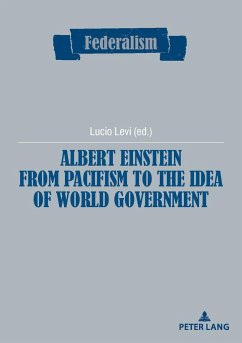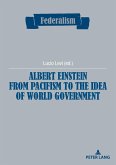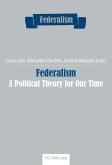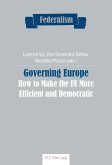Albert Einstein was one of the initiators of the peace movement in Europe in the early twentieth century. He tirelessly denounced the imperfections of society due to the primitive institution of war and devoted his energies to outlawing war. After Hitler's rise to power, he abandoned pacifism and instead embraced a federalist vision according to which the root cause of war lies in the division of the world into sovereign states and the vehicle of peace is world government.
This book explores Einstein's outlook on war and peace and traces the evolution of his thinking on these topics. In particular, Einstein developed a dialogue on war and peace with physicists like Bohr, Planck and Szilard as well intellectuals like Dewey, Freud, Gandhi, Mann, Mumford, Rolland Russell, Schweitzer and Tagore. The key concepts that were the focus of these discussions were the cause of war (included the Einstein-Freud debate on psychological and political causes of war) and the means to prevent it; the distinction between antimilitarism, pacifism, internationalism and federalism; and the dividing line between intergovernmental and supranational organizations.
This book explores Einstein's outlook on war and peace and traces the evolution of his thinking on these topics. In particular, Einstein developed a dialogue on war and peace with physicists like Bohr, Planck and Szilard as well intellectuals like Dewey, Freud, Gandhi, Mann, Mumford, Rolland Russell, Schweitzer and Tagore. The key concepts that were the focus of these discussions were the cause of war (included the Einstein-Freud debate on psychological and political causes of war) and the means to prevent it; the distinction between antimilitarism, pacifism, internationalism and federalism; and the dividing line between intergovernmental and supranational organizations.








